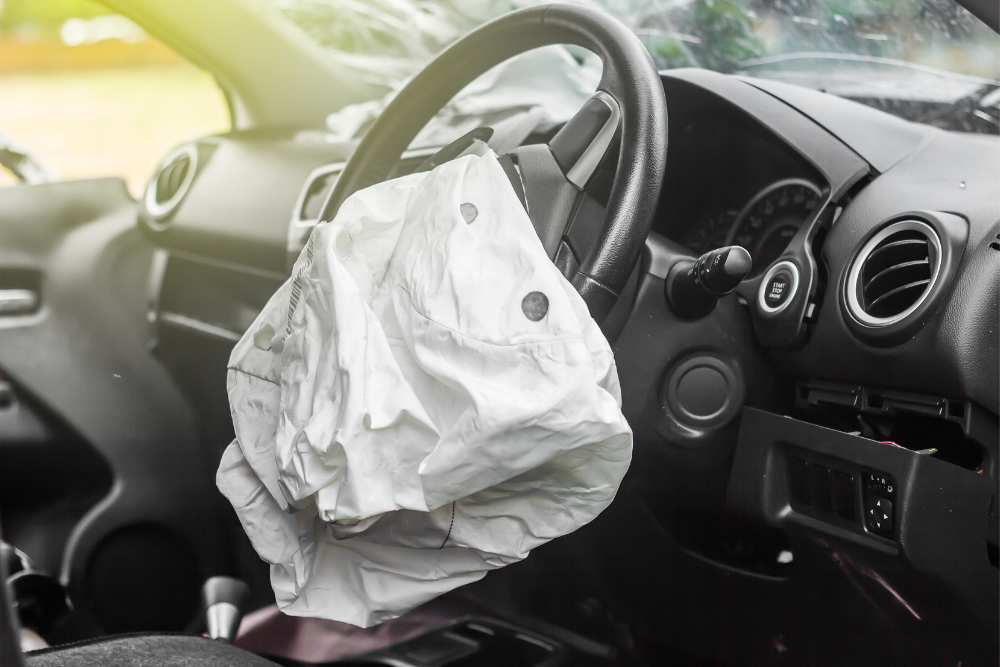Most people think that a personal injury claim related to a car accident should be fairly simple and straightforward. If you are in a crash caused by someone else and get hurt, their insurance should pay to help you recover. After all, that’s what insurance is for, right?
Unfortunately, it’s usually not that simple. Even if it is obvious to you that you are in the right and the other driver is in the wrong, they sometimes won’t give up without a fight. You have to prove that you are entitled to the compensation you are seeking.
So, how do you do that? What do you need to help you win the compensation you deserve before making your personal injury claim for a car accident?
Exchange information
You know this one. Make sure you get insurance information from any other drivers involved and provide them with your insurance info.
Take pictures of evidence
In a car crash, that typically means getting photos of the vehicles involved to show the damage. It can also be helpful if you have a “before” picture of your own car.
Beyond the vehicles themselves, it can also be helpful to take pictures of any related evidence, such as tire marks left by any vehicles involved in the accident.
Collect info from witnesses
If other people saw the accident occur and are willing to speak, ask for their contact information — names, phone numbers, addresses.
But try to avoid talking to them too much about the actual crash. Even if you think you’re saying something that seems harmless, it could come back to haunt you later.
Say yes to an ambulance — even if you don’t think you’re that hurt
Many car accident victims decline an ambulance — even if they think they’ve been hurt. Then later, they visit their doctor.
If you think you’ve been hurt, say yes to an ambulance. It is important to know if you’ve had a concussion or a neck injury, and having them look you over is the fastest way to find out. Sure, it’s a bit inconvenient, but isn’t your health more important?
If you don’t go to a hospital by ambulance, make sure you follow up with your primary care doctor right away. You don’t want there to be a gap between the accident and getting medical treatment — not only can this make any medical issues you’re suffering from worse, a delay can hurt your case because it gives the other side room to question whether your injuries really did result from the accident.
Keep all medical records
When you do seek any medical help, you’re going to want to make sure you keep all records of your visits to doctors and hospitals, physical therapy treatment, and any other treatment for your injuries. Medical records will be key in establishing the extent of your injuries for your claim.
Seek out accident reports
Were the police called to the scene of the car accident? (You can actually call them if you want, or even drive to the police station to file an accident report.)
If a report was filed with the Department of Motor Vehicles or the Secretary of State documenting what happened in the accident, you want to make sure you get a copy of it so you can use it to bolster your claim.
One of the nice things about working with a personal injury attorney is that they will do all this for you.
Gather financial records
If you are working with a lawyer, they will be able to help you get copies of doctors’ bills and receipts for things like medical equipment and medicine. Other kinds of financial records can be just as important, though.
For example, wages lost due to an inability to work may hugely impact your claim. Were you working at the time of the accident? Did you miss time? How much? Did your injuries hurt your ability to work? When? How?
If the other driver was not insured, make sure you give your lawyer information about your insurance policy.
Also, if another organization or entity has been paying your bills (an insurance company, Medicaid, Medicare, or your disability plan from work), you need to tell your lawyer.
This is important information, because those entities may have a lien on your injury settlement or award. That means they are entitled to be reimbursed out of the proceeds of your settlement or verdict because they paid medical bills that were the result of someone else’s negligence.
Keep an injury diary
While it may seem like overkill, it is important to maintain a record of how you are feeling — physically, mentally, and emotionally — since the injury occurred.
Include how your injuries are impacting your ability to live and do normal tasks, what you struggle with now, when you feel pain, and so on. When documenting symptoms such as headaches and pain, each entry should have the date and time of entry, as well as a description of the symptoms experienced.
Write entries as frequently as possible. Daily if possible, but weekly at a minimum.
Reach out to friends
Why? Because you want to have people who can speak to how you were before the accident occurred… and document your pain and suffering they’ve witnessed you going through since it happened.
Talk to an attorney
If you’re like a lot of people after getting injured, you just want things to be over with. For everything to go back to normal. Involving an attorney may seem exhausting and needless.
Here’s the thing, though — if you talk to the insurance company, you will speak to an adjuster. While this adjuster may act like someone who wants to help you and resolve your claim, that is not their job.
What is their job? To help the insurance company pay out as little as possible on your claim.
To that end, they will ask you all kinds of questions and attempt to use your words against you to prove that you are not really hurt as bad as you claim. That you do not really need the compensation you are asking for.
How do you avoid this? By working with a lawyer who has experience in handling personal injury claims. At Feingold Law, our experienced personal injury professionals understand what it takes to get you the compensation you need and deserve, and we will fight for your right to get it! We care about you and your claim and work hard to make sure you are satisfied with our work on your behalf.







